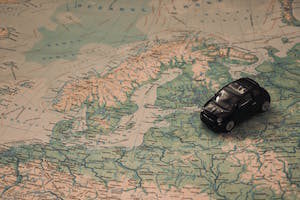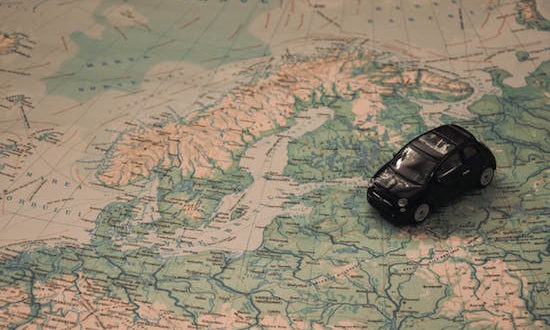 My brother in law Neil Simpson is a seasoned traveller. He and my sister Margreet have shared many memorable journeys together and travelled to far flung destinations. Based on these experiences he recently prepared this list of handy hints for a talk to his local Rotary Club.
My brother in law Neil Simpson is a seasoned traveller. He and my sister Margreet have shared many memorable journeys together and travelled to far flung destinations. Based on these experiences he recently prepared this list of handy hints for a talk to his local Rotary Club.
If you are thinking of travelling in the not too distant future you may well find them useful and money savers. These hints apply especially to Europe, North America and Australia. Neil and Margreet will be heading to India soon and undoubtedly will come back with another bunch of wonderful memories and more handy hints to share.
 Planning and Booking Ahead:
Planning and Booking Ahead:
• Commence planning 6-12 months in advance – there are more transport and accommodation options available at lesser cost.
• Search the web to find the best means of transport between destinations. Book tickets as early as possible to get best fares. Rail bookings can only be made 2-3 months in advance. Make diary reminders to respond to such deadlines.
• It is much cheaper to make your overseas bus and train bookings directly on the travel provider’s website e.g. if it is for a German rail journey go to the German rail website.
• Always check if discounts for seniors are available.
• Accommodation is important (feel good factor). Obtain the best accommodation you can afford. Make use of Air B-n-B and Trip Adviser. Booking.com usually has a book now/pay much later option.
• Even though it is often dearer, book accommodation very close to CBD, train/bus stations, or in ‘old towns’ (Europe). This gives you the best holiday options in overseas cities.
• Apartments are an attractive option. They offer more flexibility for laundry and self-catering. They are also a welcome and handy haven to retreat to and re-energise, before venturing out on the next excursion. If travelling with another couple, costs are even lower.
• Buy and take a copy of a good guide book such as Lonely Planet. You can have an electronic copy, or tear the pages out, or photocopy relevant pages if you don’t need the whole book. Use it for a road/street map, self-conducted local tours, and recommendations for nearby eateries.
Packing Tips
• In personal suit cases or packs, consider using separate ‘travel cells’ to store items of clothing etc. It is simple and efficient.
Handy things to take:
• A good cell phone and/or IPad – for finding useful information from the internet
• A multi power board – to charge all your electronic devices
• Appropriate electrical power adaptors
• A universal basin/sink plug – for shaving or washing clothes
• A bungee type washing line with a few clothes pegs
• A pocket knife or Leatherman – kept in your suit case of course.
On Arrival:
• Visit the Information Centre soon after arrival to sort out the best places to visit and best means of local public transport.
• Do not hesitate to ask locals, landlords/ladies, or hotel reception staff for recommendations as to good restaurants, cafes and shopping. Use Public Transport:
• Make use of public transport to see scenic attractions. There is often a cheap 24 or 48 hour pass. For instance in Lithuania, a conducted tour to Trakai Castle cost €32 per person. By using a public bus and taxi, we went for €34 for all 4 of us!
• The underground metro operates in a similar fashion in every major city. Take the time to familiarise yourself with the system and you will find it a comfortable, fast and easy way to get around. The same applies to buses and ferries.
Money Matters
• Keep some small coins available because in Europe you often have to pay to use a toilet.
• When withdrawing money from an ATM; request an ‘odd’ amount (e.g. $380) so that you get some notes in smaller denominations. Eating Out
• It is essential to check whether the local water is safe to drink. If it is ask for ‘tap water’ at restaurants – it costs nothing.
• Check if there is a cost to sitting inside a restaurant or cafe. You may then decide to take out.
Before Departure:
• Before leaving an accommodation, place ALL your bags at the exit door. To save later recriminations, each individual in the group should then search the living areas before vacating the premises.
• This is an odd one. Check to see if your international airliner has an upper deck (e.g Airbus A380). They have about 20 economy seats on the upper deck which are roomier than the normal main cabin seats; and can be booked on request.
By Lyn Potter. Read more here.









Join the Discussion
Type out your comment here:
You must be logged in to post a comment.